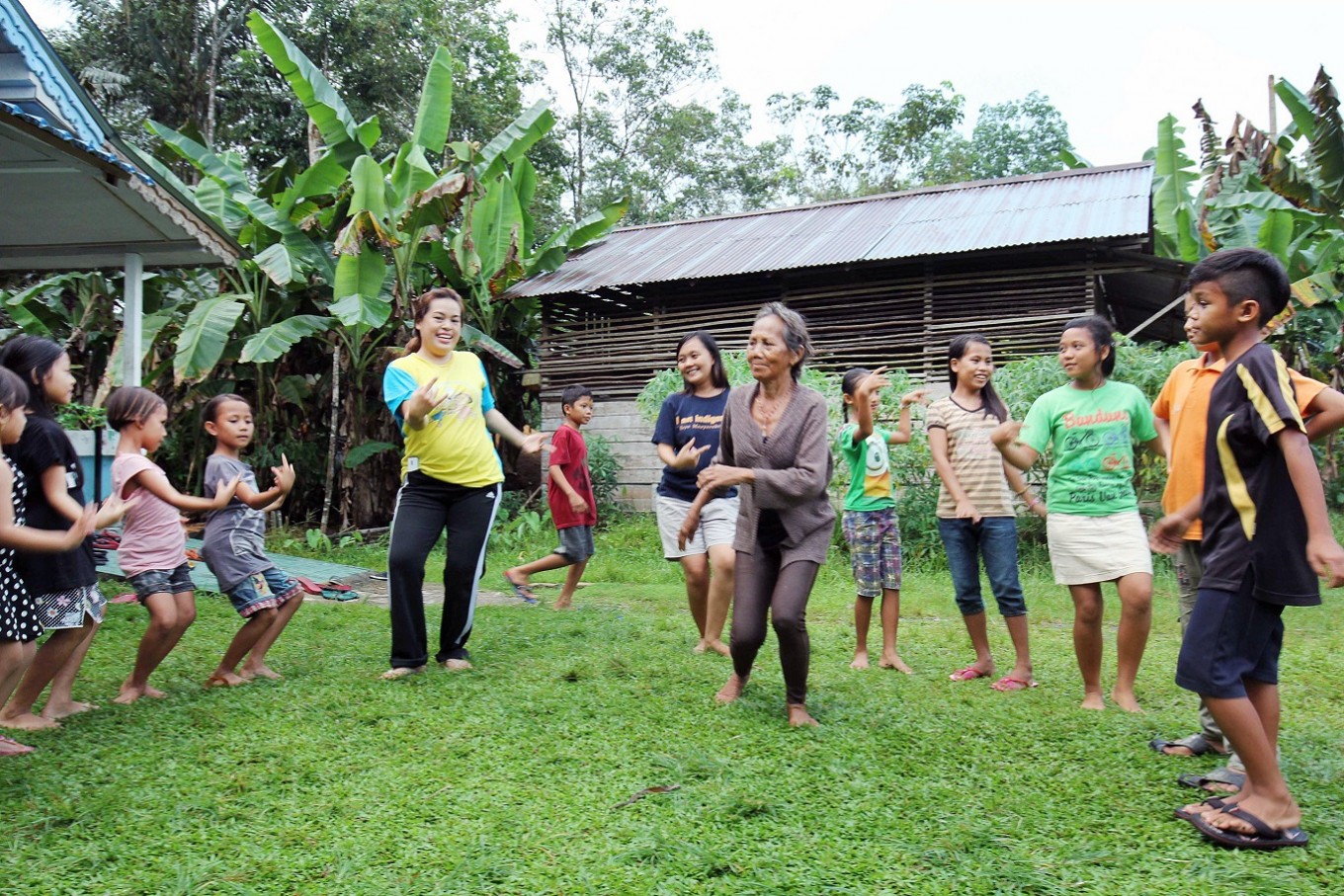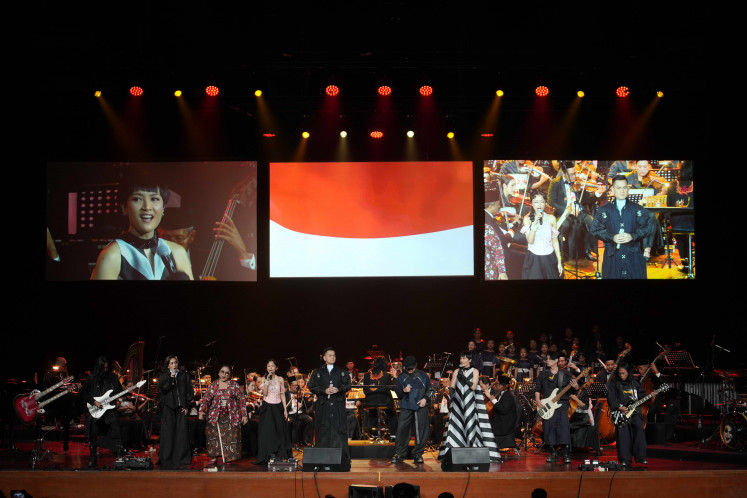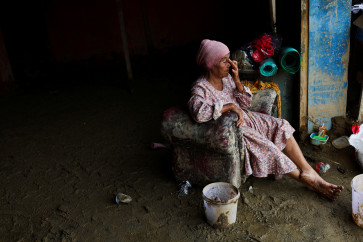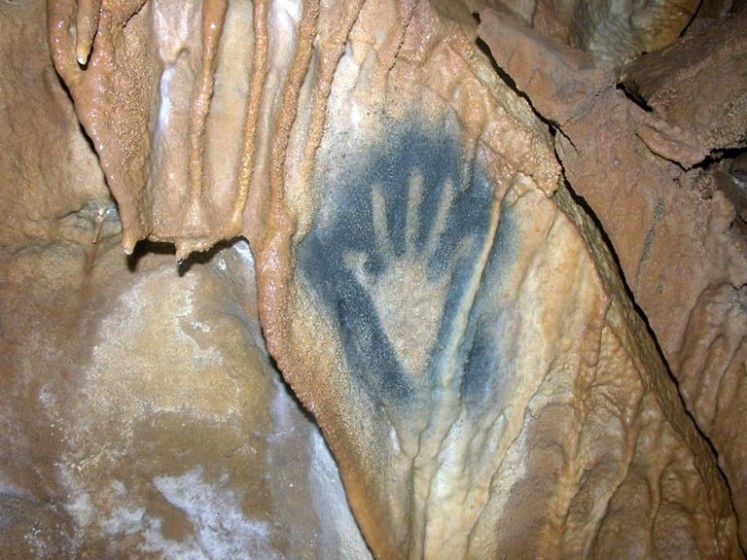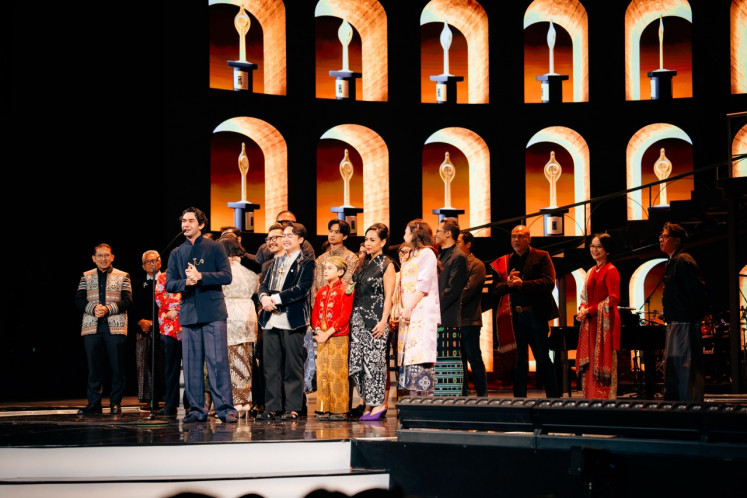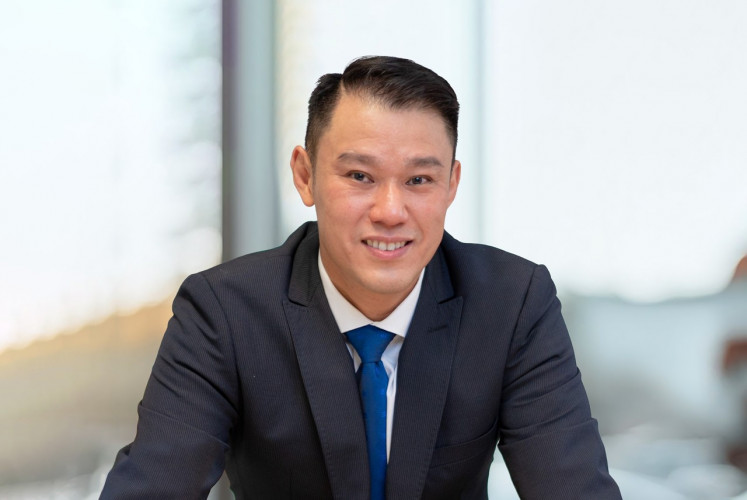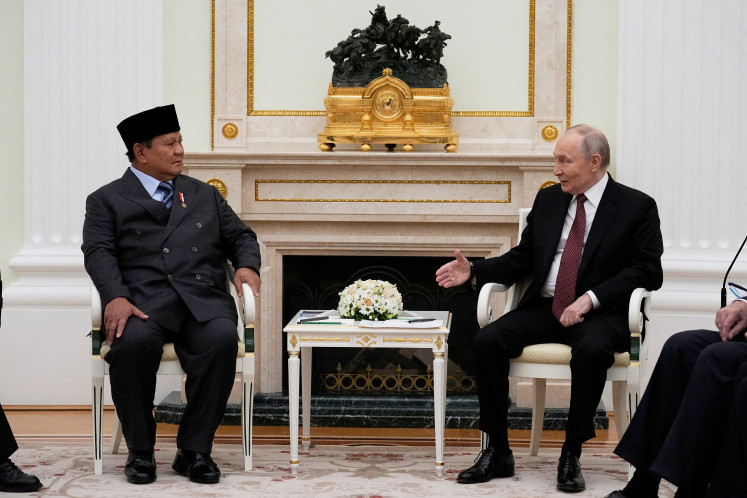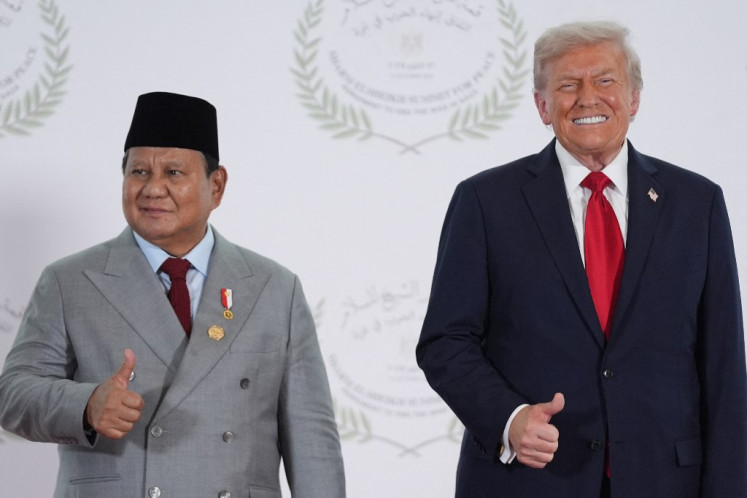Popular Reads
Top Results
Can't find what you're looking for?
View all search resultsPopular Reads
Top Results
Can't find what you're looking for?
View all search resultsSamabue traditional school to preserve local culture
A group of young Dayak women are preserving their rich culture by initiating numerous tradition-oriented school programs for children.
Change text size
Gift Premium Articles
to Anyone
O
ver 20 children and teenagers sat in a circle in a house with wooden floors, listening to a local legend recounted by 66-year-old Yohanes Natalius Siton.
Yohanes was telling the children about the origin story of the Kanayatn Dayak, the largest group within the Dayak tribe in West Kalimantan.
With the title of Timanggong, Yohanes is the tribal chief of Binua Lumut Tengah, where a Kanayatn Dayak group is based.
The story he told began with a local tale about Samabue Hill, which has a level plain on top and is considered sacred in the West Kalimantan village.
“Formerly Samabue Hill was the highest in Kalimantan. For fear it would collapse onto the Dayak people, a man, Bujakng Nyangko, sliced it twice and the cut off layers formed other hills, making its surface flat like it is today,” Yohanes said.
After Yohanes shared the story, We Lia, a 50-year-old woman commonly referred to as Nek Singara, jumped in and told a tale of a woman who loved her disabled husband.
Read also: A very sacred Dayak ritual
Nek Singara said the story, despite its adult-oriented topics, would make the children learn about loyalty to their families.
The story telling session led by Yohanes and Nek Singara was an activity at Samabue Traditional School (SAS) in Menjalin district, Landak regency, West Kalimantan.
After listening to the stories, the youngsters went to a grass field to play games, sing and dance.
On the field, Emi Goreti taught them the Kanayatn Dayak dance as traditional Bawangk music played in the background.
The children followed Emi’s graceful yet basic movements to gradually grasp the moves — and meaning — of the performance. The dancing session took around three hours from 2 p.m.
“I learn a lot about our customs and traditions from SAS. We do not learn a lot about our culture from formal schooling. This traditional school brings us much closer to our own culture,” Sherryl Christabell Agatha, also known as Ayank, said.
Ayank, a Menjalin state junior high school student, has been enrolled at SAS since it opened. A senior member of the school, she has been active in extracurricular activities and was the top student in her class.
Read also: A Dayak wedding: An affair to remember
Angela Nova, Ayank’s junior schoolmate, said she enjoyed learning about Dayak culture at SAS.
“There are many interesting things that we learn from cooking traditional food, weaving wickerwork, singing, dancing and playing games,” Angela said.
Initiatives to preserve local culture through education has traditionally come from older generations but such was not the case in Menjalin. Here, a young woman, Modesta Wisa, spearheaded tradition-oriented education to preserve local culture for future generations.
Modesta, a 2012 graduate of the Health Polytechnic in Pontianak, became an activist of cultural preservation by joining the Indigenous Peoples' Alliance of the Archipelago (AMAN) and the Archipelago Indigenous Youth Front (BPAN).
She proposed incorporating traditional school programs in youth education at a Next Gen Traditional Community leadership training program organized by AMAN, BPAN and Life Mosaic in 2015, along with 30 other Indonesian traditional youth leaders.
“We were divided into groups to propose ideas. Nedine from North Sulawesi, Sritiawati from North Kalimantan and I came up with an idea of a traditional school project,” Modesta told The Jakarta Post.
Read also: Lok Baintan floating market leads revival of river tourism
Modesta shared and presented the idea to her friends in Menjalin — Katharina Ria, Reni Baday, Yosita and Dwiana Sary. In February 2016, they launched SAS.
Two months later, Nedine launched her own traditional school called Koha in North Sulawesi, which complemented the Punen Semeriot traditional school launched by Sritiawati in North Kalimantan in December 2015.
“Each of the traditional schools focuses on different aspects. With few formal education facilities in the area, the Semeriot school concentrates on children’s literacy, while Koha focuses on the revival of culture and Samabue on acquainting children with their local culture through formal education,” Modesta said.
For Modesta, traditional schooling for the youth in Menjalin is important because formal education has estranged them from their local culture.
Many of the youth do not speak the Kanayatn Dayak traditional language. Those who go overseas to pursue a better education or career rarely return home.
“Their village is deserted and those who have left generally lose their collective spirit. This leads to a loss of appreciation for the legacy of their tradition and culture,” Modesta said.
After a year, the efforts from Modesta and her colleagues at SAS began to be recognized and appreciated.
“During the first anniversary, we began to raise donations,” Modesta said.
Modesta also said she was proud of the fact that neighboring regencies began to adopt the SAS concept to teach their youth about their respective cultures. The Mempawah and Kuburaja, for example, started their own traditional schools.
In Landak regency, local councilors and the Education Office also expressed interest in opening a traditional school like SAS in each district. They planned to involve Modesta and her colleagues as mentors.
“Our big dream is to maintain SAS operations and to see many other regions starting similar schools so that the country’s traditional communities preserve their cultural heritage,” Modesta said.

